In 2017, I conceived the Folklore & Fiction project as a series of blog entries that would eventually culminate in a book. Since then, the project has explored the intersections of folkloristics and storytelling with monthly dispatches and podcasts covering a variety of topics and reached a growing community of newsletter and podcast subscribers.
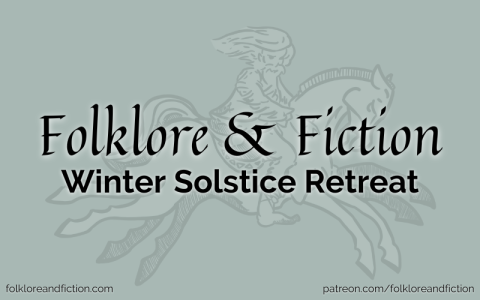
Folklore & Fiction
The December 2020 Folklore & Fiction dispatch has been recorded as a podcast, and you can both read and listen to it here. At the summer and winter solstices, I mimic the sun and pause to reflect on my own creative work. In this edition, I'm discussing myth in fiction with my short story "T Is for Three (at the End of All Things)," which was published in the C is for Chimera anthology.
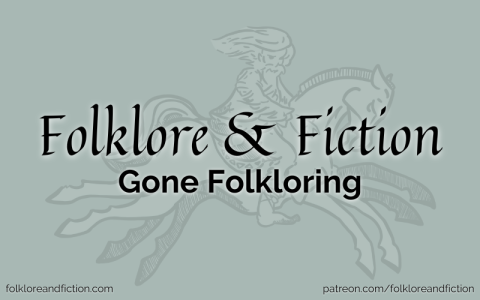
Important Notice To Mailing List Subscribers
Since 2016, the C.S. MacCath newsletter and later the Folklore & Fiction newsletter and dispatch have been managed by Mailchimp. However, Mailchimp is integrating generative AI into its platform and has updated its terms of service with language that surrenders copyright of anything created with that AI to Mailchimp.
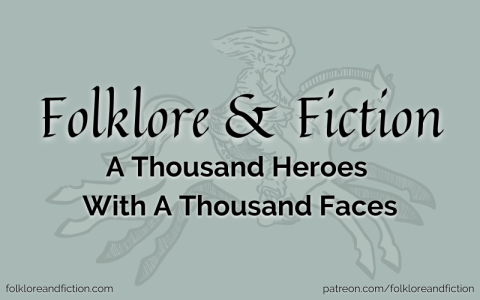
Folklore & Fiction
The October 2020 Folklore & Fiction dispatch has been recorded as a podcast, and you can both read and listen to it here. In it, I'm writing about child lore with help from scholars Gary Alan Fine and others, author Philip Pullman, and The Choral Scholars of University College Dublin. I'm also exploring the use of child lore in storycraft and providing you with an exercise on the topic.
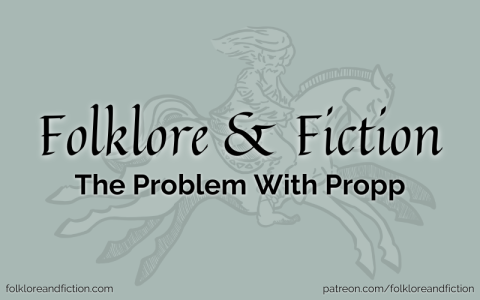
Folklore & Fiction
The September 2020 Folklore & Fiction dispatch has been recorded as a podcast, and you can both read and listen to it here. In it, I'm writing about language and verbal lore with help from scholars J.L. Austin and Richard Bauman, author Frank Herbert, Swedish performers Emma Åslund and Åsa Larsson, and others. I'm also exploring the use of language and verbal lore in storycraft and providing you with an exercise on the topic.
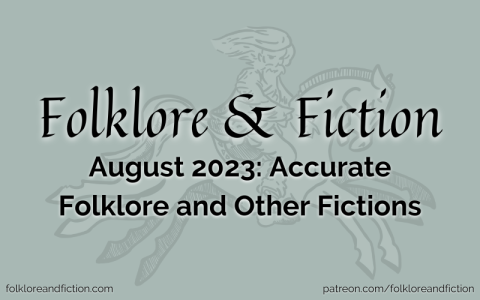
Folklore & Fiction
The August 2020 Folklore & Fiction dispatch has been recorded as a podcast, and you can both read and listen to it here. In it, I'll endeavour to provide you with an accessible introduction to narrative scholarship on the topic of conspiracy theories and summarize my discussion with a list of questions you can use to evaluate the trustworthiness of narratives you encounter online and elsewhere.
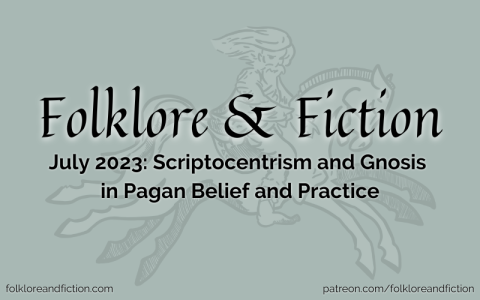
Folklore & Fiction
The July 2020 Folklore & Fiction dispatch has been recorded as a podcast, and you can both read and listen to it here. In it, I'm writing about material culture with help from the Library of Congress American Folklife Center, scholars Judith Farquhar and Simon Bronner, The Joy of Vegan Baking, and the 2005 science fiction film Serenity. I'm also discussing the use of material culture in storycraft and providing you with an exercise on the topic.

Folklore & Fiction
The June 2020 Folklore & Fiction dispatch has been recorded as a podcast, and you can both read and listen to it here. At the summer and winter solstices, I mimic the sun and pause to reflect on my own creative work. In this edition, I'm discussing representation issues in fiction with a passage from my short story "D is for Duel/One Who Dies as a God Dies," which was published in the D is for Dinosaur anthology.
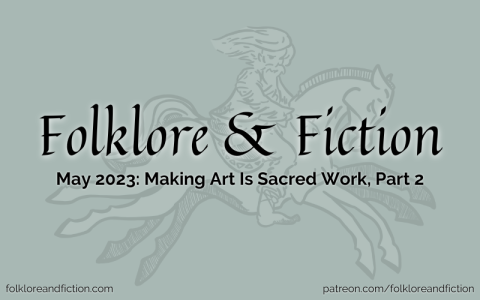
Folklore & Fiction
The May 2020 Folklore & Fiction dispatch has been recorded as a podcast, and you can both read and listen to it here. In it, I'm writing about folk customs with help from scholars Richard Sweterlitsch and Wayland Hand, author Naomi Novik, and friends Vigdís Andersen and Sveinn Svavarsson, among others.
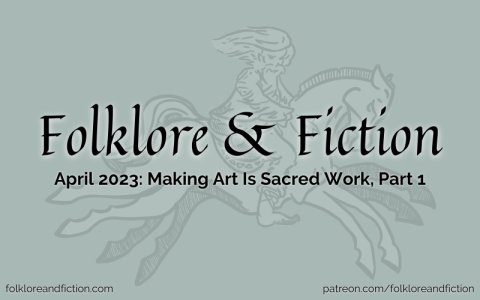
Folklore & Fiction
The April 2020 Folklore & Fiction dispatch has been recorded as a podcast, and you can both read and listen to it here. In it, I'm discussing curses with help from scholars Natalie Underberg, Evangelos Gr. Avdikos, and others, outlining the use of curses in storytelling, and providing you with an example and a reflective writing exercise.